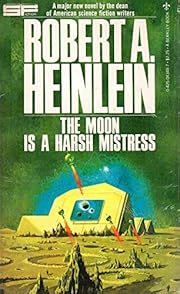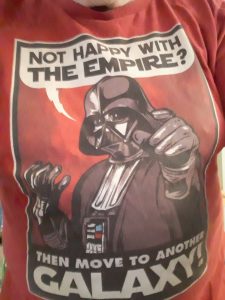Alice in translation 7
After diving into Plato, I feel like doing something lighter for this book post. I’ve started on an article on Walter Williams, but that can wait a bit. For this article, I’ll look at two translations of Alice in Wonderland which are sitting in my library. Alice is a hard book to translate, with lots of wordplay and parody verses. That hasn’t stopped translators.
Aventures d’Alice au Pays des Merveilles is the original French translation. Henri Bué translated it under Lewis Carroll’s direction, and it was published in 1869, four years after the original. The Dover edition which I have includes a 1972 introduction discussing the translation process.
Alice im Wunderland is a 1993 German translation by Siv Bublitz. It’s one of many and just happens to be the one I have. A true scholar would look at a dozen translations or more, but no one’s paying me to do this.
(more…)
 Robert Heinlein’s
Robert Heinlein’s  It’s a curious thing that the people who say you should leave the country if you don’t like it are so often the ones who favor legal barriers to doing it. Having the option is a valuable freedom, though.
It’s a curious thing that the people who say you should leave the country if you don’t like it are so often the ones who favor legal barriers to doing it. Having the option is a valuable freedom, though.  The early 1930s were a bad time for people who loved freedom. The Communists had taken over in Russia, as had the Fascists in Italy, and the Nazis were fast gaining power in Germany. The world economy had just crashed. In 1932, Aldous Huxley published
The early 1930s were a bad time for people who loved freedom. The Communists had taken over in Russia, as had the Fascists in Italy, and the Nazis were fast gaining power in Germany. The world economy had just crashed. In 1932, Aldous Huxley published